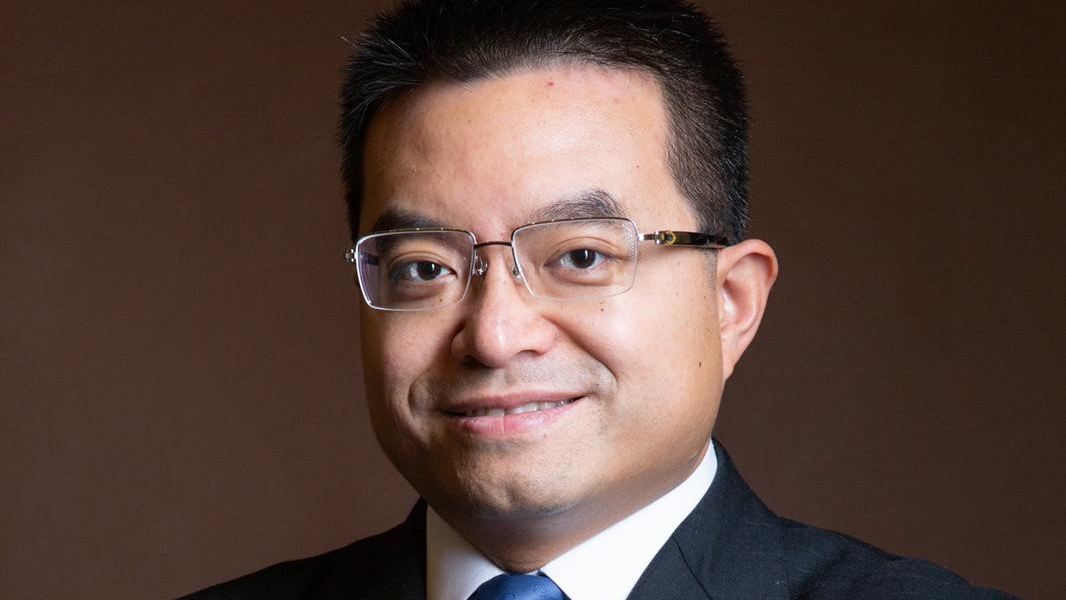New World Development Company builds ESG momentum

The real estate developer and manager has already utilised sustainable structures in one-fifth of its financing, and expects this share to grow. Shanny Basar reports.
In June, the New World Development Company (NWD) became the first corporate to issue a US dollar-denominated social and green dual-tranche offering in the public bond markets. The holding company invests in, develops, and manages residential and commercial real estate and infrastructure in Hong Kong, mainland China and internationally.
Edward Lau, chief financial officer (CFO) of NWD, firmly believes that companies should integrate environmental, social and governance (ESG) factors so the next generation achieves a better standard of living. There is also, he says, a growing focus on ESG at the top of the company — including from its CEO Adrian Cheng.
In 2018, the company set its New World Sustainability Vision 2030, which references the UN’s Sustainable Development Goals via four pillars: green, wellness, smart and caring. The Sustainable Finance Framework references the Sustainability-Linked Bond Principles issued by the International Capital Market Association and has received a positive second party opinion from Sustainalytics.
NWD chose the dual-tranche structure due to increased volatility in the markets, according to Mr Lau. He says the company could afford to wait for the right opportunity to launch the deal because of its strong financial position. With the advice of its banks, NWD spotted a market window in June when Treasury rates stabilised, and the firm felt it could satisfy investor demand for both the social and green portions. HSBC, Mizuho Securities, Morgan Stanley, Standard Chartered and UBS were joint bookrunners, with HSBC and UBS as joint structuring advisors for both tranches.
Mr Lau says: “In addition, building the books separately allowed us to create momentum for the transaction and achieve our purpose.”
The larger $500m tranche, with a 6.15% coupon, saw NWD become the first corporate in Greater China to issue a US dollar green perpetual in the public bond markets, allowing the group to match its asset portfolio.
“In the past few years, we have had a corporate mission of growing our recurring income to 50% by fiscal year 2024 and we have ramped up our investment properties which requires long-term financing,” adds Mr Lau.
NWD has also committed to prudent financial management and the perpetual allows the group to lock in a fixed rate in an increasing interest rate environment.
First to move
The dual tranche was oversubscribed by nearly five times at its peak, with strong participation from more than 100 quality investors in each bond, and a cost saving of between 10 and 15 basis points (bps). However, Mr Lau argues that the benefit was more about stepping up and being the first issuer, helping achieve NWD’s corporate mission and reaching net zero by 2050.
The green bond allows NWD to continue its commitment to build certified green buildings which incorporate sustainable operations, such as K11 Atelier King’s Road — one of the world’s first to achieve triple-platinum green and healthy building certifications.
In the smaller tranche, the five-year $200m social bond had a 5.875% coupon and priced at T+290bps.
“We have a focus on cultural preservation, social inclusion and affordable housing and can allocate to eligible projects within a 24-month window within our Sustainable Finance Framework,” says Mr Lau.
For example, an eligible project could be the not-for-profit social housing enterprise, Build for Good, which NWD launched last year and is Hong Kong’s first privately subsidised housing project to assist younger buyers.
Since 2018, NWD has raised $37bn in green financing in Hong Kong, according to Mr Lau. Approximately one-fifth of the group’s total financing has been sustainable — something he thinks will increase, particularly as structures become more innovative. For example, in January 2021, NWD became the first real estate developer to price a US dollar denominated sustainability-linked bond, which was tied to its ‘Renewable Energy Roadmap’ for decarbonising under the Paris Climate Agreement’s 1.5°C scenario. NWD is also committed to achieving 100% renewable energy for its Greater Bay Area rental properties by fiscal year 2026.
Mr Lau thinks social issuance will become increasingly important as investors are moving away from mostly focussing on the ‘E’ parameter. He says: “I am confident we may do more social bonds, but hopefully, at that time, we will have some more innovative structures.”
NWD exchanges notes on its sustainable structures with other CFOs, treasuries and peers, as Mr Lau believes that all real estate developers, as well as companies in other sectors, need to be creative, step up and do more to work towards the 2050 net-zero targets.
“We can be one of the precedents that allows them to go to their board or management and suggest doing this, so everyone can do more,” he adds. “We can be a crucial part in helping stimulate the other players to work together.”


